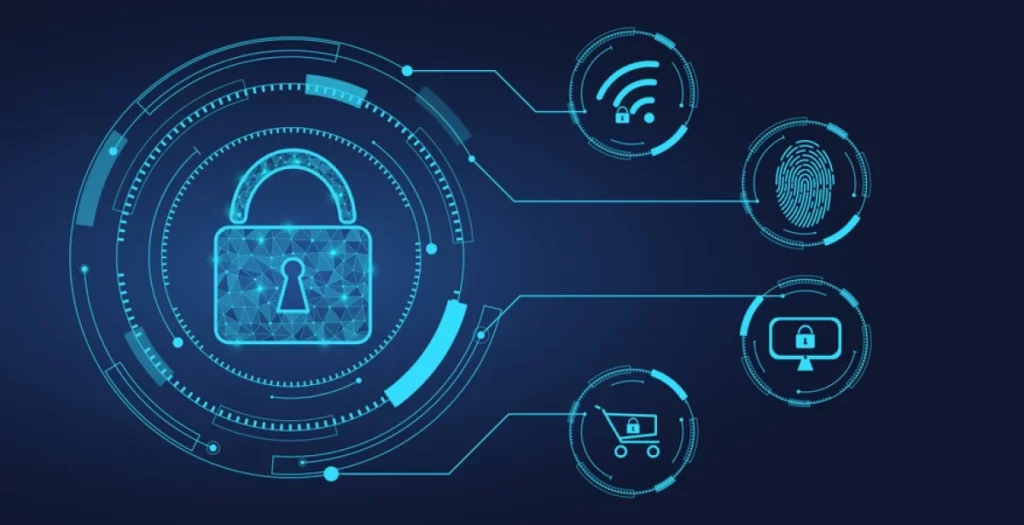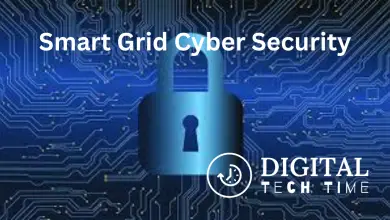Cyber Security Course Pay After Placement: A Smart Investment for Your Career

Cybersecurity threats are becoming increasingly sophisticated and frequent, making it crucial for organizations to have skilled professionals who can protect their systems and data. With the growing demand for cybersecurity experts, many individuals are looking to pursue a career in this field. However, the cost of traditional education programs can be a significant barrier to entry for some. This is where Pay After Placement cybersecurity courses come in – offering a more accessible and affordable pathway to a career in cybersecurity.
Pay After Placement cybersecurity courses are designed to provide students with the necessary knowledge and skills to succeed in the cybersecurity industry. These courses are typically shorter in duration than traditional degree programs and are focused on hands-on training and practical experience. The unique aspect of these courses is that students only pay their fees after securing a job in the industry. By doing so, students can focus on learning and gaining the skills they need, without the added pressure of financial burden.
The Pay After Placement model is gaining popularity in the cybersecurity industry, with many bootcamps and training providers offering this option. These courses offer a cost-effective way for individuals to break into the cybersecurity industry and gain valuable experience. Additionally, they provide a more flexible and accessible option for those who may not have the means to pursue traditional education programs.
Understanding Cyber Security

Cybersecurity is the practice of protecting computer systems, networks, and sensitive information from unauthorized access, theft, damage, or attacks. It involves a range of technologies, processes, and practices that aim to ensure the confidentiality, integrity, and availability of digital assets.
Cybersecurity has become increasingly important in recent years as the number of cyber attacks has risen significantly. These attacks can come from a variety of sources, including hackers, cyber criminals, and state-sponsored actors. They can take many forms, such as malware, phishing, ransomware, and denial-of-service attacks.
To be effective in cybersecurity, one needs to have a deep understanding of the various threats and vulnerabilities that exist in digital systems. This involves knowledge of programming, networking, cryptography, and other related fields. It also requires the ability to think creatively and strategically to identify and mitigate potential risks.
There are many different cybersecurity courses and training programs available, ranging from short-term boot camps to long-term degree programs. Some of these programs offer pay after placement options, which means that students do not have to pay tuition fees upfront but instead pay after they secure a job in the field.
Overall, cybersecurity is a critical field that plays an essential role in protecting digital systems and sensitive information. With the right training and expertise, individuals can build rewarding careers in this dynamic and rapidly growing industry.
Course Structure
Cybersecurity courses vary in structure and duration, but most programs cover a range of topics related to cybersecurity. The courses are designed to provide students with the knowledge and skills necessary to identify and prevent cyber threats.
The course structure typically includes both theoretical and practical components. The theoretical component covers topics such as computer networking, information security, and cryptography. The practical component involves hands-on training in areas such as ethical hacking, penetration testing, and incident response.
Many cybersecurity courses also offer certification programs that are recognized by industry leaders. These certifications can help students demonstrate their skills and knowledge to potential employers.
Some courses are offered online, while others are offered in-person. Online courses are often self-paced, which allows students to complete the coursework at their own pace. In-person courses, on the other hand, offer the opportunity to interact with instructors and other students in a classroom setting.
Overall, the course structure is designed to provide students with a comprehensive understanding of cybersecurity and prepare them for a career in the field.
Course Modules
The Cyber Security Course with Placement covers a range of topics that are essential for a career in cybersecurity. The course is designed to provide students with a comprehensive understanding of the field, from basic networking to ethical hacking.
Basic Networking
The Basic Networking module covers the fundamentals of computer networking, including protocols, topologies, and network architecture. Students will learn about the OSI model and the TCP/IP protocol suite, as well as how to configure and troubleshoot network devices.
Cryptography
The Cryptography module covers the principles and practices of cryptography, including encryption, decryption, and digital signatures. Students will learn about symmetric and asymmetric encryption algorithms, as well as hashing and key management.
Firewalls and Intrusion Detection Systems
The Firewalls and Intrusion Detection Systems module covers the design, implementation, and management of firewalls and intrusion detection systems. Students will learn about the different types of firewalls and intrusion detection systems, as well as how to configure and manage them to protect against network attacks.
Cloud Security
The Cloud Security module covers the security challenges and solutions associated with cloud computing. Students will learn about the different types of cloud computing models, as well as the security risks associated with each. They will also learn about the different security controls and best practices that can be used to secure cloud environments.
Ethical Hacking
The Ethical Hacking module covers the principles and practices of ethical hacking, including penetration testing, vulnerability assessment, and risk management. Students will learn about the different phases of the ethical hacking process, as well as the tools and techniques used by ethical hackers to identify and exploit vulnerabilities in computer systems.
The Cyber Security Course with Placement provides students with a solid foundation in cybersecurity, as well as the skills and knowledge needed to succeed in the field. By the end of the course, students will be well-prepared for a career in cybersecurity, with the ability to design, implement, and manage secure computer systems.
Placement Process
After completing a Cyber Security course with Pay After Placement, students will be assisted in finding employment in the field. The placement process typically involves the following steps:
- Resume Building: The first step in the placement process is to build a strong resume. This involves highlighting the skills and knowledge gained during the course and tailoring the resume to the specific job requirements.
- Interview Preparation: Once a student’s resume has been reviewed and approved, they will receive guidance on how to prepare for interviews. This may include practicing common interview questions, researching the company, and understanding the job requirements.
- Job Search: After the resume has been built and the student is prepared for interviews, the job search process begins. The placement team will assist students in finding job openings that match their skills and experience.
- Interviews: When a student is selected for an interview, the placement team will provide support throughout the process. This may include scheduling the interview, providing tips on how to make a good impression, and following up with the employer after the interview.
- Job Offer: If the student is successful in the interview process, they will receive a job offer. At this point, the placement team will work with the student and the employer to negotiate salary and benefits.
It is important to note that while Pay After Placement courses do offer job placement assistance, there is no guarantee of employment. However, the placement team will work closely with students to ensure that they are well-prepared for the job search process and have the best possible chance of finding employment in the Cyber Security field.
Post Placement Support
After successfully completing a Cyber Security course with Pay After Placement, students can expect to receive post-placement support from the course provider. This support can vary depending on the specific course and provider, but generally includes assistance with job search strategies, interview preparation, and ongoing career guidance.
Some Cyber Security course providers offer mentorship programs, where students are paired with experienced professionals in the field who can provide guidance and advice as they navigate their new careers. This can be a valuable resource for students who are just starting out in the industry and may not have an extensive professional network.
In addition to mentorship programs, many Cyber Security course providers also offer alumni networks or online communities where graduates can connect with one another and share job leads, industry news, and professional development opportunities. These networks can be a valuable source of support and encouragement as students transition from the classroom to the workforce.
Overall, post-placement support is an important component of any Cyber Security course with Pay After Placement. By providing students with the resources and guidance they need to succeed in their new careers, course providers can help ensure that their graduates are well-equipped to thrive in the fast-paced and constantly-evolving field of Cyber Security.
Investment and Returns
When considering a cyber security course with pay after placement, it is important to understand the investment required and the potential returns. Prospective students should usually budget $12,000-$20,000 for tuition expenses. Until enrolling, learners will also need to pay registration fees or take prep courses. Furthermore, several boot camps charge for machinery and course supplies.
While the initial investment may seem steep, cyber security is a rapidly growing field with high demand for skilled professionals. According to the Bureau of Labor Statistics, employment of information security analysts is projected to grow 33 percent from 2020 to 2030, much faster than the average for all occupations. This growth is due to the increasing need for cyber security in businesses and government agencies to prevent data breaches and cyber attacks.
After completing a cyber security course with pay after placement, graduates can expect to earn a competitive salary. The average salary for an entry-level cyber security analyst is $76,000 per year, according to Glassdoor. With experience and additional certifications, salaries can reach six figures.
In addition to a high salary, many cyber security boot camps offer job placement assistance. This can include resume building, interview preparation, and networking opportunities with potential employers. Some boot camps even offer a job guarantee, meaning that if a graduate does not find a job within a certain timeframe, the boot camp will refund their tuition.
Overall, investing in a cyber security course with pay after placement can lead to a promising career with high earning potential. While the initial investment may be significant, the potential returns make it a worthwhile investment for those interested in the field.
Success Stories
Many students who enroll in Cyber Security courses with a Pay After Placement model have found success in their careers. These courses provide students with the necessary skills and knowledge to enter the cybersecurity field, and the Pay After Placement model ensures that students only pay tuition fees after they have secured a job.
One success story is that of John, who completed a Cyber Security course with a Pay After Placement model. John had no prior experience in cybersecurity but was interested in the field. He enrolled in the course and learned various cybersecurity skills such as network security, ethical hacking, and cryptography. After completing the course, John secured a job with a cybersecurity firm and paid his tuition fees using his new salary.
Another success story is that of Sarah, who also completed a Cyber Security course with a Pay After Placement model. Sarah had a background in IT but wanted to transition into cybersecurity. She enrolled in the course and learned various skills such as threat analysis, risk management, and incident response. After completing the course, Sarah secured a job with a multinational company and paid her tuition fees using her new salary.
These success stories demonstrate the effectiveness of Cyber Security courses with a Pay After Placement model. Students can gain the necessary skills and knowledge to enter the cybersecurity field without the burden of upfront tuition fees. They can also be confident in their ability to secure a job after completing the course, as the Pay After Placement model incentivizes the course provider to ensure that students are job-ready.
Frequently Asked Questions
What are some pay-after-placement courses in cyber security?
Some institutes offer pay-after-placement courses in cyber security. These courses allow students to pay the course fee only after they get a job. ITKART offers pay-after-placement courses in cyber security, cloud computing, and digital marketing for students who have completed their BE, BTech, MCA, MTech, BSc Computer Science, or MSc Computer Science by 2022-23.
Which institutes offer cyber security courses with job guarantees?
Several institutes offer cyber security courses with job guarantees. QuickStart, for example, offers a job guarantee for its cyber security bootcamp. Other institutes such as ITKART and Federal Cyber Defense Skilling Academy also offer job assistance to their students.
What is the average starting salary for a cyber security professional?
According to Payscale, the average starting salary for a cyber security professional in the United States is around $70,000 per year. However, this can vary depending on the job role, location, and experience.
Are pay-after-placement courses a good option for pursuing a career in cyber security?
Pay-after-placement courses can be a good option for students who are interested in pursuing a career in cyber security but do not have the financial means to pay for the course upfront. However, it is important to do thorough research on the institute and the course before enrolling to ensure that it is a reputable and effective program.
What are the job roles available after completing a cyber security course?
Completing a cyber security course can open up several job opportunities such as security analyst, security engineer, security consultant, network security engineer, and many more.
What skills are required to excel in a cyber security career?
To excel in a cyber security career, one needs to have a strong understanding of networking, operating systems, and programming languages. Additionally, skills such as critical thinking, problem-solving, and communication are also important in this field.





